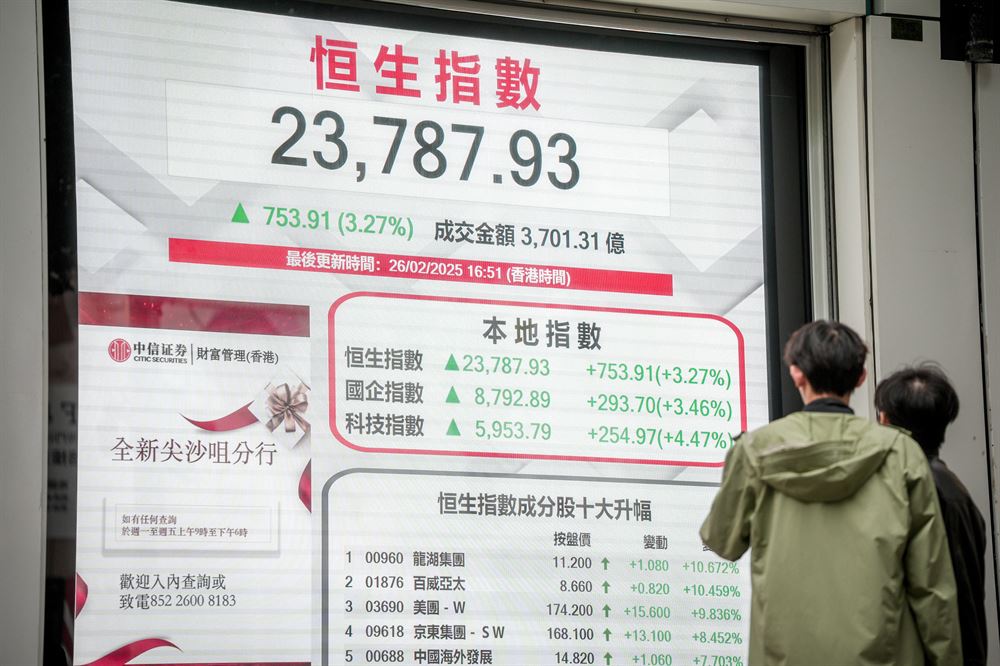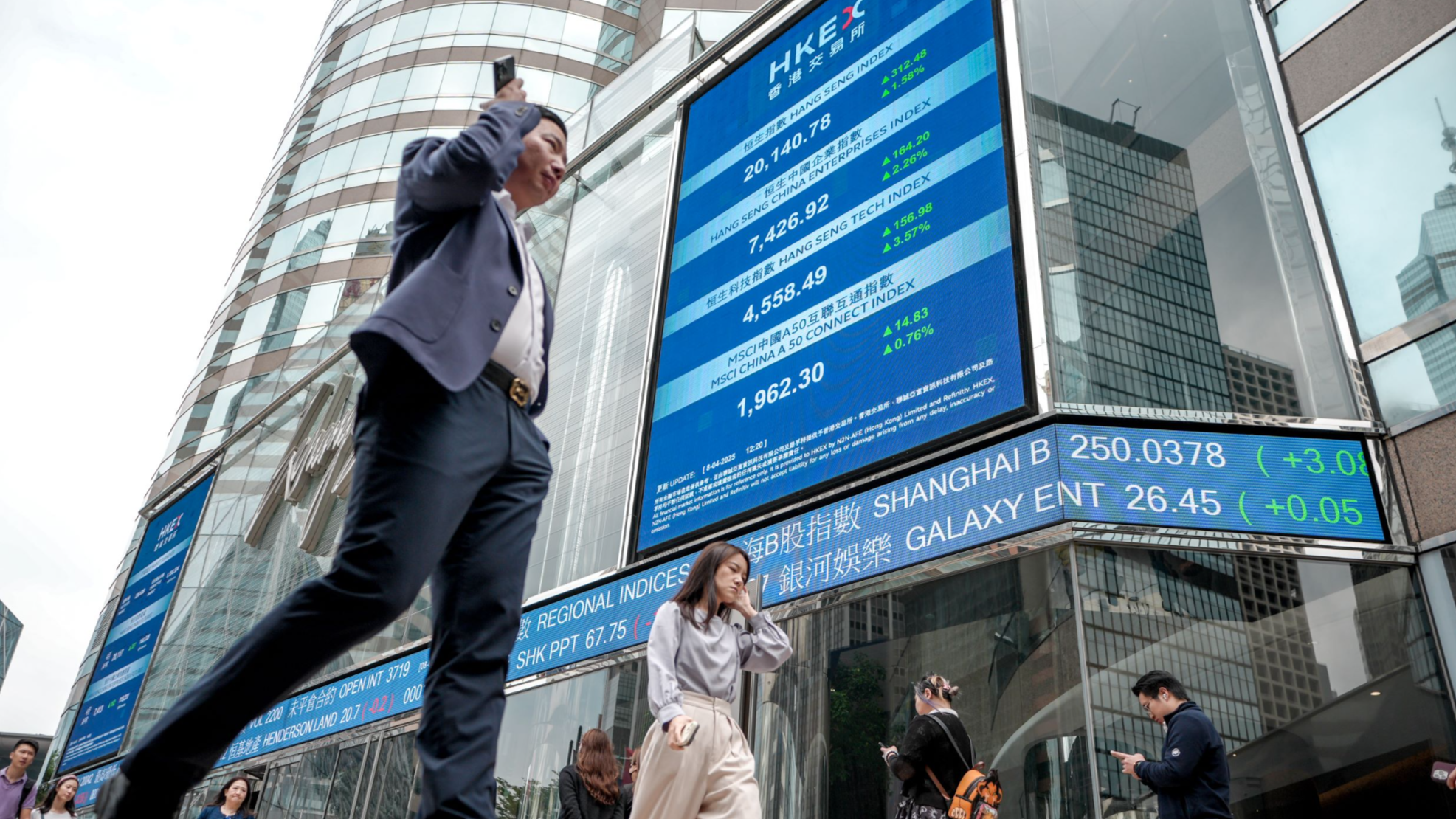
Hong Kong’s stock market has demonstrated resilience this year, navigating early gains followed by periods of consolidation. However, analysts warn that challenges persist, and a return to previous highs will hinge on a combination of internal dynamics and external influences.
The benchmark Hang Seng Index rose over 12 percent in the first four months of 2025, closing at 22,119.41 on Wednesday. The Hang Seng Tech Index, tracking 30 major technology firms, surged more than 16 percent, while the Hang Seng China Enterprises Index, representing Chinese mainland companies listed in Hong Kong, gained nearly 14 percent.
The first quarter saw a robust performance, with the HSI climbing more than 15 percent and peaking near 25,000 in March, before a sharp decline recorded in early April following US President Donald Trump’s announcement of “reciprocal” tariffs on trade partners, including China.
But since hitting a low of 19,828 on April 7, the HSI has gradually recovered and risen over 10 percent.
“The resilience of the Hong Kong stock market in the first four months has exceeded my expectations,” said Alvin Ngan, an equity strategist at Zhongtai Financial International.
Technology, healthcare, and consumer goods were among the leading sectors driving gains during this period.
ALSO READ: HSI continues rebound as the impact of tariffs’ turmoil wanes
The tech rally earlier this year mainly benefited from renewed global investors’ interest in Chinese firms following the emergence of home-grown artificial intelligence company DeepSeek. According to Ngan, AI remains a growth narrative even amid the ongoing trade tensions.

Kenny Ng Lai-yin, a strategist at Everbright Securities International, said President Xi Jinping’s mid-February meeting with private enterprise leaders stands as another catalyst for tech stocks as the meeting signaled the central government’s unwavering support for the private sector, boosting confidence in the business environment.
Recent gains in consumer stocks have been fueled by expectations of policy support. Ng said that to mitigate the potential impact of weaker external demand on growth targets, the central government is expected to introduce measures aimed at stimulating domestic consumption.
Looking ahead, Ngan said Sino-US trade tensions continue to be a main challenge for Hong Kong equities, as long-term foreign investors remain cautious.
He added that the HSI’s future performance will be influenced by whether substantial progress can be made in the trade talks between the world’s two largest economies. If the US reduces tariffs on Chinese imports and avoids further restrictions on Chinese technology firms, the index could test the technical resistance level of 22,500 points.
Policy support will be a critical factor influencing the index’s trajectory. Ng said investors are monitoring domestic policy moves, including potential interest rate cuts, reserve requirement reductions, and consumption incentives.
Ng said he expects the HSI to fluctuate between 19,000 and 24,000 points for the rest of the year. However, he noted that reaching the previous high of around 25,000 will be challenging because of a more volatile external environment.
READ MORE: Hong Kong’s stock market booms with Wall Street in turmoil
Ng said he expects the fundraising of initial public offerings in Hong Kong to surpass 2024 levels this year, potentially positioning the city among the world’s top three IPO markets. In the first four months, 18 companies have debuted in Hong Kong, fueled by improving market sentiment and government measures that encourage industry leaders to go public in the city.


